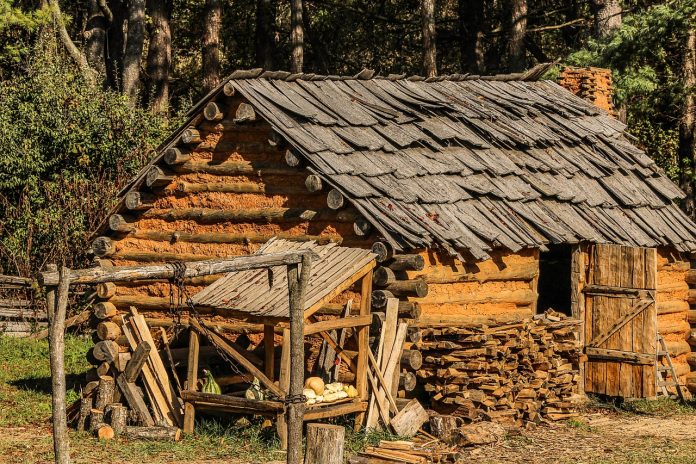As a lover of history, I sometimes wonder at the reliance of Americans today on the many safety nets we now have, courtesy of federal, state and local governments.
We enjoy pretty-much-guaranteed incomes whether we work or not, very minimal starvation due to various food assistance programs and most folks can easily get at least emergency medical care.
Compare these modern conditions with those of our ancestors, who left the crowded and oppressive conditions of their native countries and migrated to the “new world” in hope of bettering their futures and those of their children.
After facing a long and dangerous ocean crossing they were landed in an unfamiliar country, sometimes not even knowing the language, and often facing several years of bonded labor to which they had pledged themselves in order to pay for their ocean passage.
Go West
Before many years, some of these individuals, possibly more independent or adventurous than his neighbors, left those by now familiar surroundings on the eastern seaboard and “went west;” my own Scots-Irish great-great-great-grandfather, Robert Moore, was one of these.
He came from Ireland in 1788 and settled in Westmoreland County east of Pittsburgh, which had been established not many years earlier and at that time was considered the frontier because it was west of the Allegheny Mountains.
In 1800, the family moved even farther west to Beaver County near the Ohio-Pennsylvania state line, although Ohio wasn’t even yet a state.
In 1834, my great-great-grandfather, also named Robert, bought a nearby 160-acre farm, the same one on which I grew up.
Most of the rugged individualists who cleared the wilderness frontier did it with an ax, a hoe and a bag of seed, with their rifle close by.
Log home upgrade
I don’t know what the condition of our farm was when Robert Moore bought it, but I do know that the family lived in a log house until the farmhouse my own family lived in was built in 1850 by my great-grandfather Samuel Andrews Moore.
Trees were chopped down and cut and notched into logs for the walls of a crude house, or were split into puncheons for the floors and to make furniture, Shingles were split and the house roofed, and a fireplace and chimney was constructed from sticks and clay mud.
Many of these log huts, due to the urgent need to get a crop in the ground, had bark covered roofs and packed earth floors upon which an ambitious housewife might scratch a decorative pattern with a sharp stick. Split wood floors and shingled roofs had to wait until the husband had free time.
Once shelter for the family was provided, the ground around the stumps was scratched up with a hoe and seeded. With luck, a crop was produced before winter set in to supplement the family’s diet of wild game or fish from nearby streams, and to provide seed for next year.
Then a well might be dug, a log barn put up for crop storage, firewood cut for winter fuel, and a thousand other chores taken care of.
Sometimes, if a fast-running stream was close by, an enterprising man might build a grist mill driven by a waterwheel. This not only allowed him to grind his own flour but that of his neighbors as well, for a fee of course — part of the flour ground from each grist.
Meanwhile, there was no medicine available, except home cures, and there was seldom a doctor within miles around. Illness, fever, and childbirth claimed many victims, as did accidents.
Occasionally the local Native Americans went on a rampage and burned out a settler, or scalped him and carried off his wife and children.
The toil was unrelenting, the life hard and dangerous — but to these hardy people being in charge of their own affairs and neither obedient nor beholden to any person or government made it all worth it. They were unsophisticated, often uneducated, crude and uncouth, but each was master of his own destiny.
Prince Louis Phillippe (pretender to the French throne and later King of France until one of that country’s periodic revolutions deposed him in 1848), traveled in America and was said to have stopped at a tavern in Cincinnati, although his own travel diary never mentioned being in the town.
He did travel from Pittsburgh to New Orleans by flatboat in 1799 and would have gone right past Cincinnati so it’s possible.
After eating, Louis, who was notoriously tight-fisted, disputed the amount of the bill and he and the tavern keeper argued.
Supposedly, Louis said haughtily, “One who is destined to become king of France cannot stoop to bandy words with a common backwoodsman.”
The story goes that the angry tavern keeper threw the prince outside into the gutter and said, “There! You’re to be a king are you? Well, we’re all kings over here.”
After all this rambling, I’m still unsure of my point, but we owe a lot to these rugged and adventuresome men and women, who through their sacrifices and hard work built this country, fought the wars, and invented amazing things, making life better for us, their children.
I’m afraid many of us have lost that adventurous spirit and willingness to take risks that were displayed by those pioneers.













